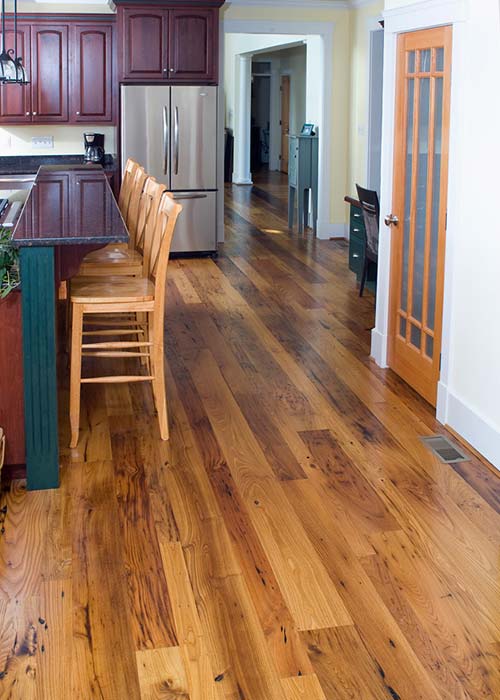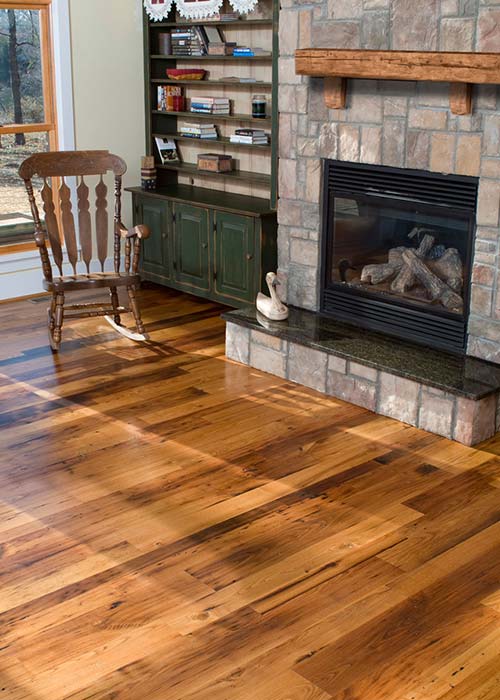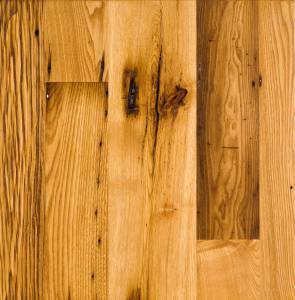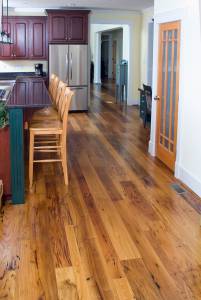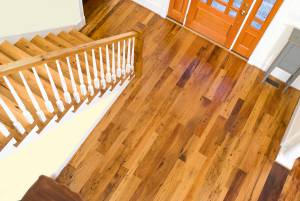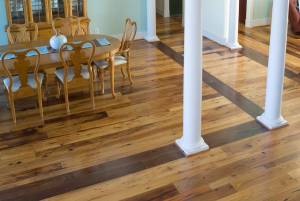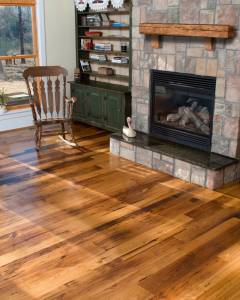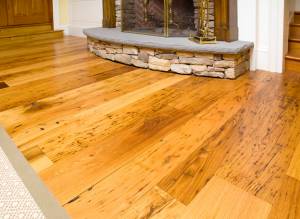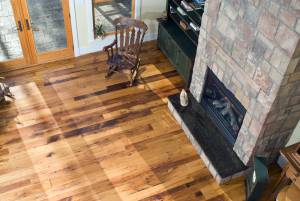Antique & Reclaimed Wormy Chestnut
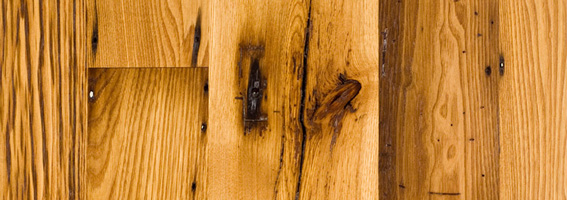
Antique & Reclaimed Wormy Chestnut Hardwood
Chestnut, a North American species, was a commonly used as a building material during the early growth of America. This tree is currently extinct due to Chestnut Blight in the early 1900 "s, making this material a rare and highly prized find. Following the blight, some of the standing dead wood was infected with small borers in lumber. This dead and damaged wood was called “Wormy Chestnut". Chestnut is gathered by dismantling old barns, buildings and other structures. Most chestnut is characterized by its aged patina coloring, small worm hole patterns, nail holes, bolt holes, stress cracks and cuts. The sapwood of chestnut tends to be a light brown color, while the heartwood tends to range from honey brown to a dark chocolate color.
Grading is available in a resawn or Milled Grade that shows unique and beautiful aged patina coloring. Antique & Reclaimed Wormy Chestnut flooring is LEED qualifying materials.
Specifications |
|
|---|---|
| Available In: | Solid and Engineered |
| Widths: | 3" – 10", Random widths mixes are preferable to most |
| Thickness: | 5/8" and ¾" |
| Solid Lengths: | Standard 2"-12" random lengths; specific lengths available upon request |
| Engineered Lengths: | Standard 1"-10" random lengths; specific lengths available upon request |
| Available Finish: | Unfinished, Natural Oil Pre-Finished, Waterbase Pre-Finished and Staining |
| LEED Credit: | Yes |
